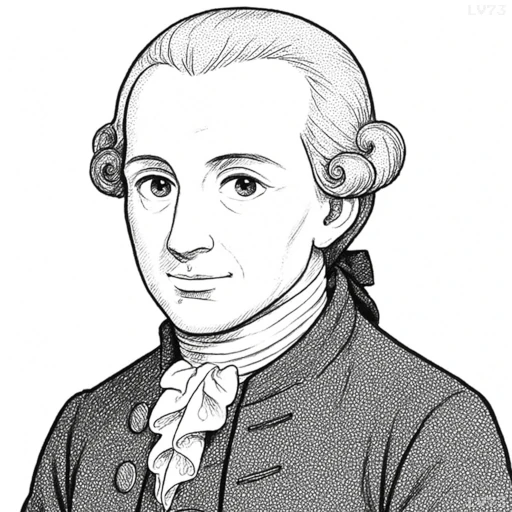“I had therefore to remove knowledge, in order to make room for belief.”

- April 22, 1724 – February 12, 1804
- Born in Germany (East Prussia)
- Philosopher
table of contents
Quote
“I had therefore to remove knowledge, in order to make room for belief.”
Explanation
In this quote, Immanuel Kant reflects on the limits of knowledge and the necessity of belief in areas that go beyond what we can know through reason or empirical observation. Kant is grappling with the distinction between knowledge, which is grounded in reason and experience, and belief, which pertains to matters that cannot be proven or fully understood through scientific or rational means. Kant believed that knowledge is confined to the phenomenal world—the world as we experience it—and that certain aspects of reality, especially those concerning morality, spirituality, or metaphysical questions, are beyond the scope of empirical knowledge. To address these areas, belief becomes necessary, as it allows individuals to make sense of things like God, free will, or the afterlife, even though these concepts cannot be directly known through the senses or reason alone.
In modern times, this idea invites reflection on the relationship between science and faith. For example, in discussions about ethics, religion, or life’s purpose, people often rely on beliefs—such as religious convictions or philosophical systems—that cannot be definitively proven by scientific knowledge. Kant’s perspective challenges the idea that everything can be known through empirical methods, encouraging a recognition of the limits of reason and the need for faith in areas of life that transcend observable facts. This is particularly relevant today in conversations around science vs. religion, where both knowledge and belief play crucial roles in how we approach meaning, morality, and existence.
Historically, this quote comes from Kant’s effort to reconcile the limits of empirical knowledge with the necessity of belief in the metaphysical and ethical realms. His Critique of Pure Reason explores the boundaries of what we can know through reason, arguing that while we cannot have knowledge of things like the noumenal (things-in-themselves), we can still have belief in them, especially in relation to moral laws and religious faith. This marked a shift in philosophical thought from the purely empiricist and rationalist schools that dominated the Enlightenment. Today, Kant’s view still influences debates on epistemology and the philosophy of religion, where the tension between faith and knowledge continues to shape how individuals approach questions of truth, morality, and the limits of human understanding.
Would you like to share your impressions or related stories about this quote in the comments section?


